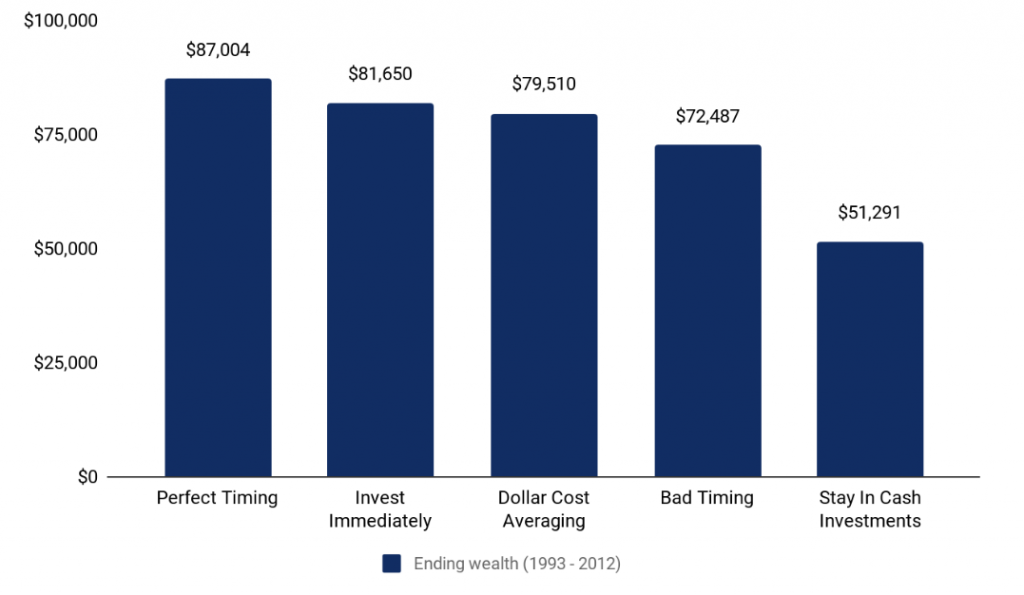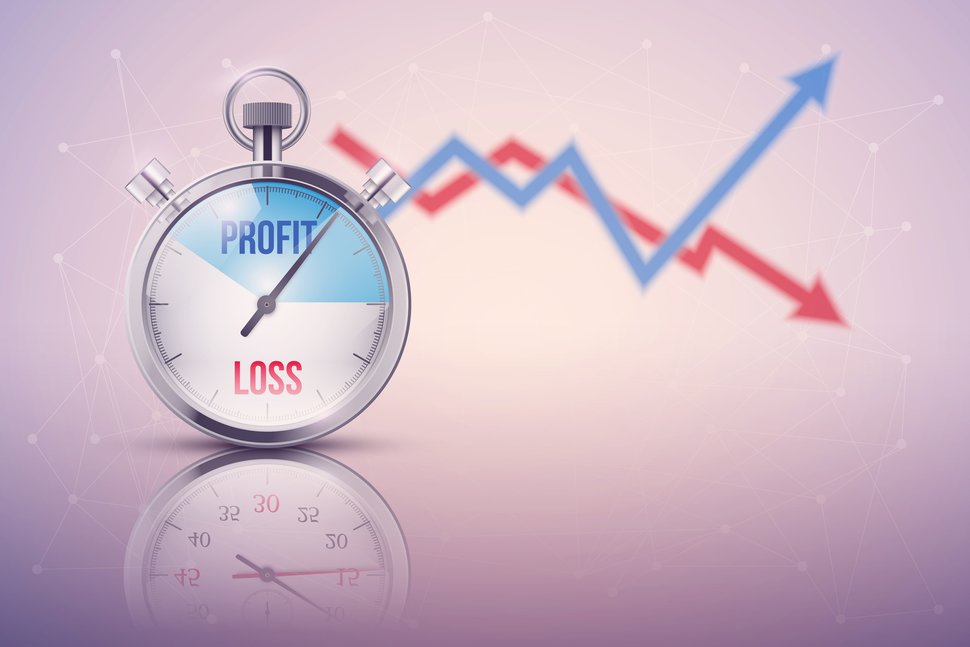The Covid 19 pandemic will be remembered for many things. One of them is the fastest stock market recovery in history. The BSE Sensex is up 88% from the Bottom of March 23, 2020. This tremendous market rally has left many wondering if it’s now too late to join the investing band wagon.
From a valuation outlook, stocks appear to be rather expensive right now. According to data from the NSE, the current PE is 38.86. This widely tracked evaluation statistic is significantly above its five-year average of 26.3 and its 10-year average of 22.94. Over the past few weeks, we’ve seen the Sensex hit all-time highs.
It doesn’t matter that the market is at an “all-time high”
Since investors ought to “buy low and sell high”, now is a horrible time to invest, yes? Absolutely not!
Waiting for the market to correct results in lost opportunities. If you decide not to invest when the market is at an all-time high, over the years you will likely miss the subsequent highs that occur. Certainly, the market has ups and downs, but historically, it performs positively over the long term.
While everybody prefers to buy at market lows, timing the market is extremely difficult. Even professionals don’t get it right all the time. It is more important to be invested early on so that you don’t miss out on the new highs that will inevitably follow.
What happens what if I invest just before the market crashes?
The fear that the market could crash soon after you’ve invested is another concern frequently holding investors back. That fear is valid since the market cannot keep rising continuously.
The truth is if you do happen to invest right before a market crash, your short-term returns will be no doubt affected. But the longer you stay invested, the more likely that your eventual returns will be closer to the long-term average.
If you are planning for a long term financial goal such as retirement, investing just before a crash is still better than not investing at all.
The key is not to panic and stay invested. Easier said than done! Especially when you see the market falling 38% in two months from it’s January high to it’s March low last year. This is why it’s so important to invest as per your risk tolerance, that is, the degree to which you can stomach losses when your investments perform poorly.

Which is the Best Strategy?
Given that the market rises in the long term, it makes sense to simply enter the market and stay invested, instead of trying to time it. A study from Charles Schwab (an American financial service MNC and the 14th largest banking institution in the US) highlights this best.
It found there’s something worse than bad timing: procrastination.
The study followed five fictional characters who each received $2,000 annually for two decades from 1993 to the end of 2012.
- Peter Perfect had perfect timing, always investing at market lows.
- Ashley Action didn’t time anything. She would invest her $2,000 as soon as she received it.
- Matthew Monthly used an SIP strategy. He invested his $2,000 over the year, investing at the beginning of every month.
- Rosie Rotten had horrible luck. She always ended up investing her funds are all-time-highs.
- Larry Linger kept waiting for the right time to invest. Because he was always waiting for a better opportunity, his money remained in cash investments.
Why Invest As Soon As You Can
The results are astonishing. Ashley Action never tried to time the market and invested immediately she got her money. But her returns almost match Peter Perfect’s. She ended up with only $5,354 less, even though Peter Perfect was able to invest at all-time-lows.

You would expect Rosie Rotten to perform the poorest as she had such bad timing. Guess what? She ended up with only $7,023 less than Matthew SIP, and $21,196 more than Larry Linger, who didn’t invest in the stock market but bought Treasury Bills instead.
The point is to invest at your earliest regardless of market highs and lows. Not even professional wealth managers can consistently identify market bottoms. Even if you succeed in timing the market perfectly, the study shows that you will earn only slightly higher than someone who invested right away without timing the market.
Stock Market Crashes are few and far in between. Over the past three decades, there have been only 5 crashes of 35% or more, once every six years on average.
The idea that you’re going to swing the bat at the perfect ball is deeply misguided. Take 2020, for example. The perfect ball came at the speed of 200 kmph. It was in the wicket keeper’s glove before we could lift the bat off the ground.
If you can’t stomach the idea of investing a lump sum when the market is peaking, consider starting an SIP. At least that way you won’t end up like Larry Linger.
In investing, there are times to be careful, be content and aim to not lose our wicket – just like the Indian cricket team did to draw the recent test match under challenging conditions. And yes there would be other times – when we end up earning excess returns- an unexpected bonus.
The questions to ask yourself are:
- Are you a long-term investor? Are you investing for a goal that’s 10 years or more in the future? If yes:
- Do you believe that things will not fundamentally change (that is, do you think that the market will continue to go up more than it goes down in the future, that businesses will continue – for the most part – to innovate and grow)?
If you answer yes to both of those questions, you’re probably a long-term investor (and perhaps cautiously optimistic). So, how should you invest? Invest in the same way you would if you weren’t paying attention to the markets.
Let’s Talk!
Want some help investing in a complicated world? Let’s talk about your needs and formulate a plan. We can provide guidance and help you manage your investments.



